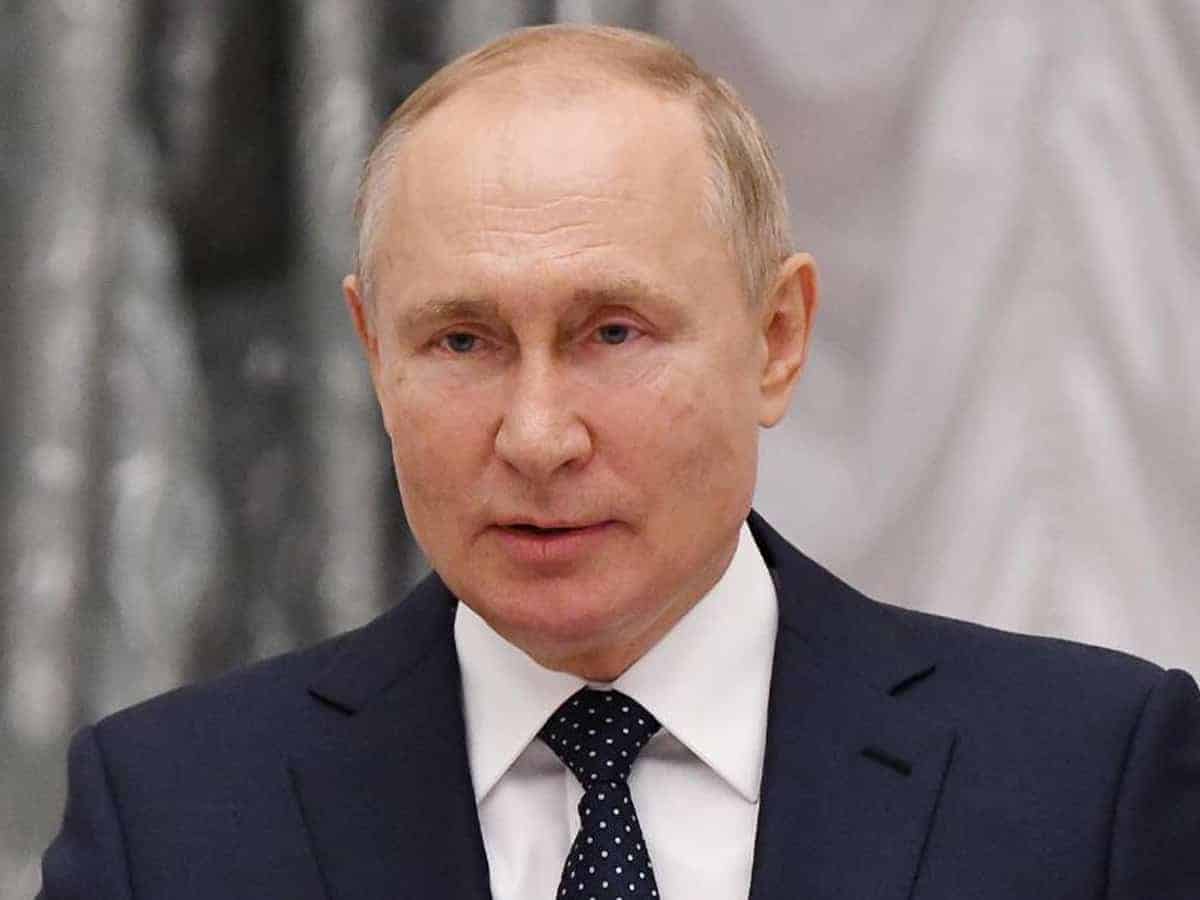
Kiev/Moscow: After signing a decree to recognise Ukraine’s rebel regions of Donetsk and Luhansk as independent states, Russian President Vladimir Putin has ordered more troops to perform “peacekeeping functions” in the conflict-hit eastern region, raising fears that they could soon cross the border into Kiev.
Currently, Ukraine is being surrounded by more than 150,000 Russian troops on its borders.
On Monday night, Putin inked the Treaty of Friendship, Cooperation and Mutual Assistance between Russia and “the Luhansk People’s Republic (LPR)” and “the Donetsk People’s Republic (DPR)” with the heads of the two Moscow-backed separatist regions, Xinhua news agency quoted a Kremlin statement as saying.
“I consider it necessary to make a long overdue decision — to immediately recognise the independence and sovereignty of the DPR and the LPR,” Putin said in an hour-long televised address to the nation.
“Russia has done everything to preserve the territorial integrity of Ukraine” by fighting for the implementation of 2015 Minsk agreements, but all the efforts ended up in vain, he told said.
According to Putin, nearly everyday there is Ukrainian shelling of settlements in the Donbas region, that comprises Luhansk and Donetsk, and “there is no end in sight”.
The crisis of European security occurred due to the eastward expansion of the NATO, which has led to the loss of mutual trust with Russia, the President stressed.
He called it just “a matter of time” for NATO to accept Ukraine as a member state and then build facilities on its territory so that the level of military threats to Russia will rise dramatically.
Putin said modern Ukraine had been “created” by Soviet Russia, referring to the country as “ancient Russian lands”, the BBC reported.
He referred to Russia having been “robbed” during the collapse of the Soviet Union in 1991, accused Ukraine of being a “US colony” run by a puppet government, and alleged that people were suffering under its current leadership.
Responding to Putin’s announcement, Ukrainian President resident Volodymyr Zelensky said the country wanted peace, but declared that “we are not afraid” and “will not give anything away to anyone”.
He added that his country now needs “clear and effective actions of support” from its international partners.
“It is very important to see now who our real friend and partner is, and who will continue to scare the Russian Federation with words only,” the BBC quoted Zelensky as saying.
Putin’s move has been widely condemned by the international community.
While US President signed an executive order that prohibits new investment, trade and financing by Americans in the breakaway regions, UK Prime Minister Boris Johnson said Russia’s actions amounted to “a flagrant violation of the sovereignty and integrity of Ukraine” that breaks international law.
The European Union has pledged to “react with unity, firmness and with determination in solidarity with Ukraine”.
US Ambassador to the UN Linda Thomas-Greenfield has warned that the consequences of Russia’s move will be dire across Ukraine, Europe and worldwide, adding that Putin “has torn the Minsk agreement to shreds”.
While Australian Prime Minister Scott Morrison called the move “unacceptable, unprovoked, unwarranted”, Canada’s Foreign Affairs Minister Melanie Joly called it “a serious threat to the security and stability of the region”.
In 2014 soon after Russia annexed the Crimean Peninsula, the regions of Donetsk and Luhansk proclaimed their independence.
Peace agreements were signed during 2014-15, but the conflict remained which led to hundreds of thousands of people leave the regions.
An estimated 14,000 people have died since 2014.

